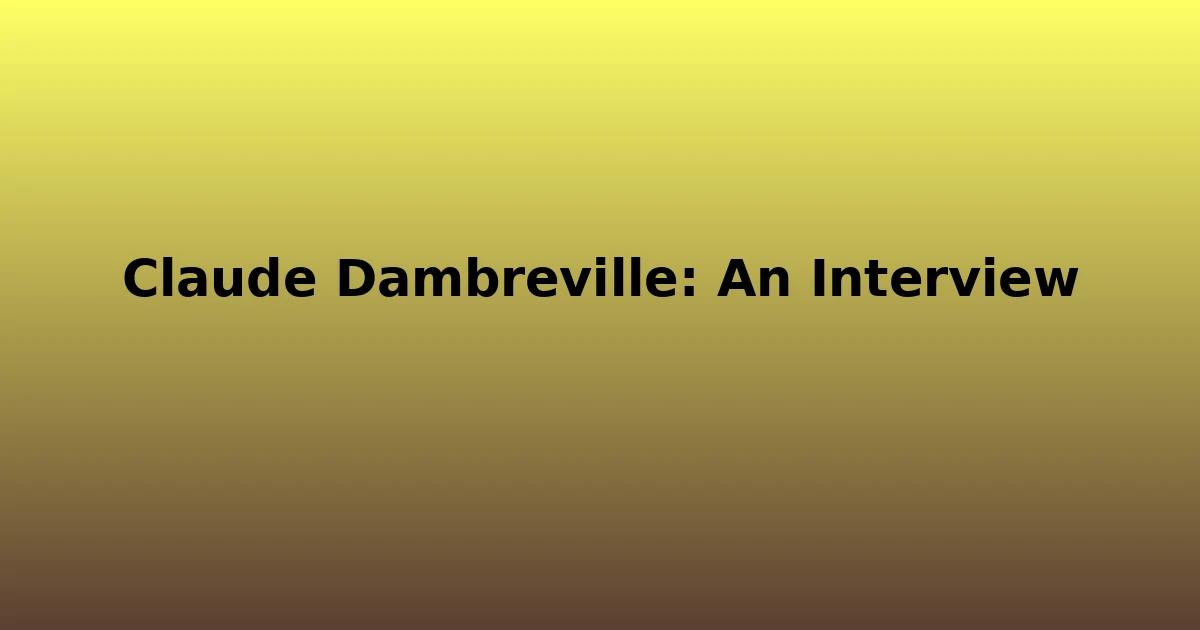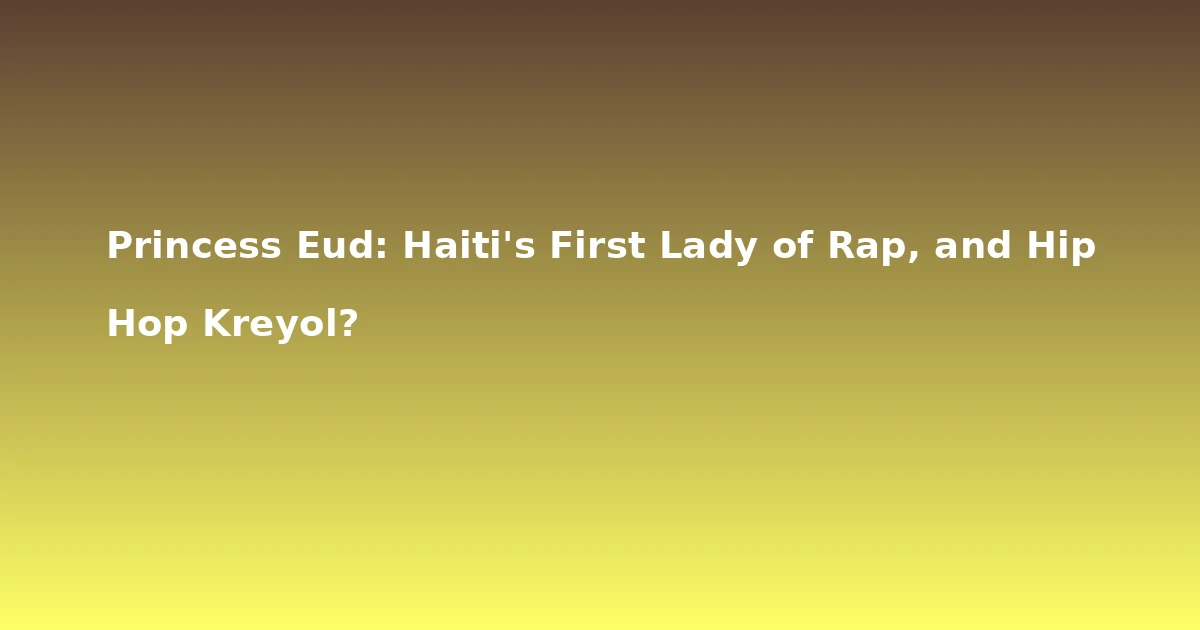For a time in the 1980s, singer-songwriter-composer was what Marvin Gaye and Bob Dylan were in the 1960s, a sort of father of the Haitian peaceful protest song. “Solèy”, a song that he wrote to lament the closing of a popular radio became an influential hit.
Listening to the song before learning the back story of it, one would think that he was talking about the actual sun! “Lè’m pa wè solèy la, lè’m pa wè solèy la/Mwen pa ka rete-e/Mwen pa ka kanpe/Mwen pa ka mache/Kè’m pa kontan/Mwen pa sa viv” (When I can’t see the sun, when I can’t see the sun/I can’t stand still/I can’t hold up/I can’t even walk/I’m totally depressed/I don’t wanna live).
You sit there listening and you want to say, “Calm down dude, even if you don’t see the sun, there are other ways to get your Vitamin D, supplements for one.” Well, except that “Solèy” is a reference not to the proverbial sun, but to Radio Solèy (Creole spelling), a popular radio station in Haiti in the 1980s, that was very outspoken in terms of bemoaning injustice.
From what we have learned of radio in Haiti, especially from that period, it must have taken some bravery on Daudier’s part to come up with such a song.
This proved to be an exciting and fruitful time in Daudier’s career. Besides being an artist, the Les Cayes-born singer wrote and produced songs for other artists, and was part of musical projects with fellow Haitian artists like Carole Demesmin, Mario Devolcy, and Hans Peters.
He was also an instrumental part in Shap Music Productions, a Haitian artist collective that tried to formulate a record label-like structure to lend some organization to the Haitian music industry in Haiti.
Solo artists were few, and perhaps because of the fact that there had been very few, and ones who didn’t necessarily create a standard path to success to follow, he was at a loss at to what to do in terms of career direction. Disillusioned with Haiti, and the direction the country was heading towards, he left the country in 1989 to join his mother in New York, and later moved to Florida.
In 2008, he released an album entitled Tropical Paradise on the Creole Beat label, and is preparing its successor.
Of course we hit up this pioneer to get the goods on some Haitian music history, and to know what he’s up to these days!
Q&A
What was your childhood like?
I was skinny and shine but really active. Listening music, drawing, playing soccer and volleyball. When I [turned] 15, I found out I could sing and I stay with music only.
What was it like living in Haiti in the 1980s?
A lot of excitement. I was sharing my talent with everyone. I used to play at every school event, radio shows, TV [stations] and theaters in Port-au-Prince. It was the beginning of a new career.
Can you describe the music scene in the 1980s?
It was flourishing. I used to performed at Villa Creole on Thursdays, the Kinam Hotel on Fridays, Batofou on Saturdays and Chez Florville Kenscoff on Sundays. I was making more money than at my bookkeeping job.
Who taught you how to play the guitar?
I learned by myself. My first guitar was a broken once my half-brother Carlos Placide left over my house. He had a fight with his friends the night before in a serenade in Les Cayes and the guitar broke.
Do you remember the brand of the guitar of your half-brother’s?
The brand was Valencia—a Spanish guitar. I could not buy real strings I had to use motorcycle cables as strings.
You wrote a song called (Lè’m Pa Wè) Solèy (La), a pivotal record for that decade. Did you imagine that the song would be so influential, and such a catalyst?
I wrote the song for the Catholic Radio station Radio Soleil which supported the fight against the Duvalier regime in Haiti in 1985-1986.
At that time the government closed the radio and I felt like doing something. I toke my guitar and a piece a paper, I wrote the song and toke it to them.
They said they would play it for me if the radio goes back on the air. They did but they never said who wrote the song to protect me. I had friends who were friends with the Duvaliers that never said anything either.
The recognized my voice because we used to play music together. After Jean Claude Duvalier left Haiti to Paris on February 7, 1986 the radio talked about me. I did not know if my song would have such impact in that revolution. It was an inspiration from God.
Can you please tell us about SHAP Music Productions?
After I recorded or “Lem Pa Wè soley La” at Audiotek, we could not find any producers in Haiti to finance the rest of the project. Robert Denis the owner of Audiotek, Mushi Wimaier, Joel Wimaier, Raoul Denis Jr, Hans Peters and I, created the SHAP label.
How did you meet with the artists Carole Demesmin and Hans Peters?
I met Carole Demesmin and Hans at the Audiotek Studios in Delmas. Hans used to jam with me at Kinam Hotel in Petion Ville on Fridays.
What do you think can be done to improve the Haitian music industry?
We need to invest money in our music. Open a big distribution company with copyrights. We are still doing business the old fashion way.
Every one of us should make millions because there are enough Haitians out there to buy our music. But we can’t take advantage of the market because we are not organized. We need to give the musicians what they deserve. Time to move to the next level.
Do you have any regrets?
Not being able to live in Haiti and help my country in its difficult times. Also, not choosing to move in France after I left Haiti instead of the US. I think [they would have been] more open [to] my music in Europe and Africa.
As one of the solo artists from Haiti who started in the 1980s, do you think that you would have had better opportunities, had you been debuting in later decades?
Perhaps if our country had peace and no political crises for the last 25 years, I could stay there to enjoy my fame and my country. There is no place like home.
Our ancestors died for this piece of land.
What are you most cherished memories from the time you were living in Haiti?
I have a lot good memories of Haiti. I really love my country from the bottom my heart. Even with all the problems and miseries.
When you live outside your country, you don’t have any respect. You are a number. At home, they know who you are and where you came from.
Are there any special stories behind some of your other songs?
The song “Je Voudrais être un Artiste” [I Want to Be an Artist] has a story behind it. “Maman” a song that I wrote for my mother—which is a true story about my family. My mother left Haiti when I was young and I was missing her so much.
I did not really spend time with her and learn who she was until in my adult life.
When your mom left Haiti, you were raised by your father? How did that affect you?
I was already a teenager at that time. It wasn’t easy for me because I did not have a good relationship with my father. I explained everything in a song that I wrote for my mother.
You say that there is a story behind “Je voudrais etre un artiste”. Would you mind discussing it?
When I was living in Les Cayes, I took my guitar with me every morning to the beach or to the pier to practice. I had friends, but I was living in solitude as well.
The guitar was my real companion. My dream was to become an artist so I can sing about life, sing for the poor and my country.
What has changed over the years about the Haitian music industry from what you can see?
New emerging artists with different ideas and we promote the music better because of the Internet.
In your career as a musician, what moment stands out for you the most?
Every performance counts for me. In front of a big audience or small.
What can we expect from you? What are you working on currently?
I am working on new album the title will be “Haiti”. Also, I am planning to visit Haiti in December after 6 years. I need to reconnect with my fans and see the disaster of the earthquake with my eyes.
As far as this new album is concerned, how many songs will be on it? Will there be any guest artists?
Ten songs. A song that I wrote for Haiti and Dr Martin Luther King Jr., will be on it. There will be other guest artists as well.
If you could give some advice to some of the artists who are emerging now, what would you tell them?
Be professional. Always [show up] early to play your gigs.
Let us show our support for our Haitian artists. Be sure to check out Jean-Michel Daudier and .
Last Updated on December 4, 2025 by kreyolicious



